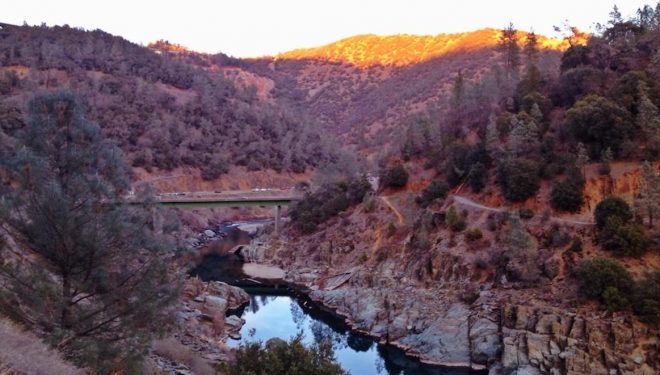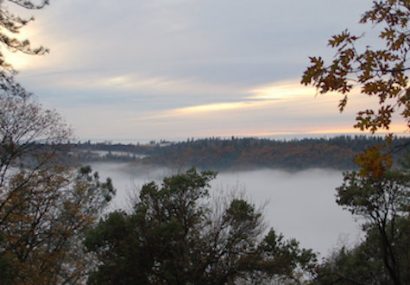
By Debbie Leonard
On June 24, 2020, the Nevada State Engineer held a workshop to solicit comments on proposed amendments to and adoption of regulations pertaining to Chapter 533 of the Nevada Administrative Code, which deals with matters within the scope of State Engineer’s statutory authority. The proposed regulations are wide reaching, covering revisions to protest proceedings for water rights applications and creating extensive new procedures regarding applications for extensions of time. They also specify licensing requirements for professional water right surveyors. One hundred people participated in the hearing by video and telephone, including water lawyers, engineers, water rights consultants, permit holders and representatives from every stakeholder group in the State, including water purveyors, agriculture, mining and environmental interests.
Existing Water Regulations
Although Nevada Revised Statutes 532.120 gives the State Engineer broad authority to “make such reasonable rules and regulations as may be necessary for the proper and orderly execution of the powers conferred by law,” as a practical matter, the State Engineer has engaged in very little rulemaking. Existing regulations are largely limited to procedures and penalties for violations of water laws and permit requirements; procedures in protest hearings; and well drilling requirements. In the absence of regulations governing water use, there has been considerable litigation over the State Engineer’s interpretation of Nevada water laws.
Impetus for Current Rulemaking Effort
In 2019, the Nevada Legislature passed AB 62, which directed the State Engineer to “adopt any regulation necessary to carry out the provisions” in Nevada Revised Statutes 533.380. That statute relates to extensions of time to perfect a water right. The bill was proposed by the State Engineer and, as introduced in the Legislature, sought to add specific requirements that a permit holder must satisfy in order to obtain an extension of time to file a proof of completion and proof of beneficial use. It also set a deadline by which such proof must be accomplished.
The bill received considerable pushback, particularly from municipal water purveyors who expressed that the limited time frame proposed in the bill unreasonably interfered with long-term water resource planning and forecasting. After legislative committee hearings and discussions with stakeholders indicated that the proposed statutory change was lacking traction, the State Engineer proposed an amendment to the bill that simply directed him to address the issue through a regulatory process.
Some debate occurred among legislators as to what that process should look like since the State Engineer is not subject to the Nevada Administrative Procedures Act. Ultimately, after the State Engineer explained that the agency conducts a public rulemaking process that includes hearings, workshops, meetings with stakeholders, the development of small business impact statements, and approval by the Legislative Commission, the Legislature did not impose any burden on the State Engineer to comply with formal rulemaking procedures to which other Nevada agencies are subjected.
In late 2019, the State Engineer held informal public workshops to walk through some of the concepts for the proposed regulations that were being considered. The State Engineer then issued notice of the proposed rule changes in June 2020.
Stakeholders’ Concerns with the Proposed Regulations
The regulatory changes proposed by the State Engineer may far exceed the scope of AB 62. In addition to extensions of time to file proof of construction of works and proof of beneficial use, the proposed regulations update and amend the regulations governing procedures for hearings before the State Engineer and adopt regulations for the licensing of Nevada Licensed Water Right Surveyors. In total, the proposed regulations span 27 pages and constitute a significant rulemaking effort that could have profound impacts to water users.
With a condensed public comment period because the State Engineer seeks to quickly submit the proposed regulations to the Legislative Commission for formal rulemaking review, many commenters expressed that the process was too rushed. Some also complained that the State Engineer was taking on too much at once without adequate time to protect against unintended consequences. Numerous commenters suggested that the proposed regulations be limited to the legislative directive from AB 62 and address other matters in a subsequent rulemaking process.
Municipal Purveyors Concerned Regulations Might Interfere with Long-Term Planning
On the substance of the regulations, the vast majority of comments came from municipal water purveyors concerned that the proposed regulations could interfere with their long-term planning horizon for securing a sustainable water supply. By statute, upon issuance of a water permit, the maximum amount of time the State Engineer may set to file a proof of completion of the diversion works is five years from the date of approval. The deadline for filing the proof of beneficial use may not exceed ten years from the date of approval. Nev. Rev. Stat. 533.380(1)(a)-(b).
If the necessary proofs are not filed within those time frames, the permit holder must file an application for extension of time to prevent cancellation of the permit. The applicant must provide “proof and evidence” that it is proceeding in good faith and with “reasonable diligence” to perfect the application. The statute provides that:
“. . .the measure of reasonable diligence is the steady application of effort to perfect the application in a reasonably expedient and efficient manner under all the facts and circumstances.”
The State Engineer may grant “any number of extensions” but no since extension of time can exceed 5 years. Nev. Rev. Stat. 533.380(3)-(6).
The proposed regulations set forth detailed requirements for the contents of an application for extension of time and create definitions for “steady application of effort” and “significant action” taken to perfect a water right. They also articulate criteria, in addition to those required by statute, that the State Engineer will consider when reviewing an application for extension of time.
Concerns Over New Proposed Procedure for Protesting Application for Time Extension
Of particular concern to numerous commenters at the workshop was a proposed new procedure for protesting an application for extension of time. Currently, no formal process exists to object to the State Engineer continuing to grant extensions when a permit holder fails to timely perfect an appropriation. However, there has been litigation to challenge the State Engineer’s serial approvals as being in violation of the anti-speculation doctrine. See Sierra Pacific Industries v. Wilson, et al., 135 Nev. 105, 440 P.3d 37 (2019).
The regulations propose that where an applicant has requested and received ten or more years of extensions of time to perfect an appropriation, the State Engineer may publish notice of the application and allow interested persons to file a written verified protest against the granting of the application. The State Engineer must consider any protests and may hold a hearing and require the filing of additional evidence as deemed necessary “to gain a full understanding of the issues involved.”
Numerous commenters deemed the ten-year period arbitrary and, often, is too short a window of time to effectuate water resource planning. Some noted that the proposed regulations fail to account for the planning, funding, and infrastructure challenges that municipal purveyors, rural governments and small water systems face with regard to ensuring adequate future water supplies, particularly in the “boom and bust” economic cycles that Nevada often experiences. Some questioned whether the time frame was antithetical to water conservation efforts. Questions were raised as to whether municipal purveyors should be treated differently than other water permit holders.
They also expressed concern that this new protest process for extension applications will mire permit holders and the State Engineer in litigation and further slow down the agency’s ability to do its work. The proposed regulations, some observed, create onerous obligations on permit holders without getting to the heart of the issue, which is to prevent water speculation.
Conclusion and Implications
The tenor of the comments at the public workshop indicated widespread concern over the scope and pace of the State Engineer’s regulatory process. It is unclear to what extent the State Engineer will heed these worries. Stakeholders will likely have more information in the coming months when the State Engineer issues a revised draft of the proposed regulations to submit to the Legislative Commission. The extensive proposed change in administrative regulations discussed in part, above, is available online at: http://water.nv.gov/documents/NDWR_Prop_Admin_Regs-Hearings_EOT_Water_Right_Surveyor_6-8-2020.pdf




